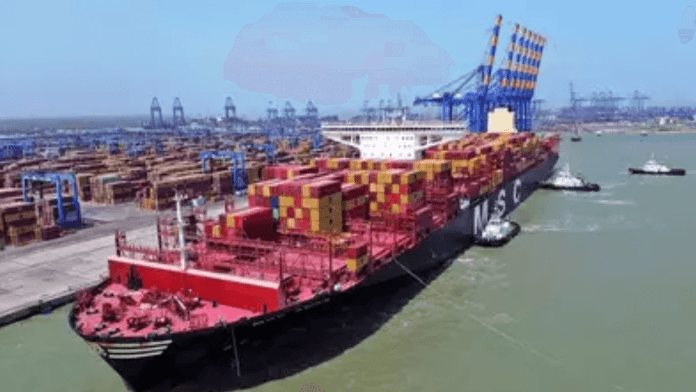News in Brief:
– Russia has begun shipping wheat to Brazil from the Vysotsky Port on the Baltic Sea, marking the first time grain has been exported from this port to Brazil.
– This new route aims to ease the burden on the Azov and Black Sea ports, with Russia estimating a total grain export of 70 million tonnes for the 2023/24 season.
Russia recently sent wheat shipments to Brazil. This move, initiated from the Vysotsky Port on the Baltic Sea, highlights shifts in trade routes and market dynamics that are crucial for farmers worldwide to understand.
Russia’s agricultural watchdog has confirmed that for the first time, grain has been shipped to Brazil from the Russian Baltic Sea ports. The initial shipment of 31,000 tons of wheat, which underwent rigorous quality checks, signals the opening of a new route for Russian grain exports.
Vysotsky Port, located 50 kilometers from the Russian-Finnish border, began operations in April 2023. Initially, its first cargo was dispatched to Tunisia. The terminal boasts a planned capacity of 4 million tonnes per year, offering a significant boost to Russia’s grain export infrastructure.
Shipments from the Baltic Sea are designed to ease the load on the grain terminals of the Azov and Black Seas, which are currently operating at full capacity due to record export volumes this season. Grain terminals are specialised facilities where grain is stored and shipped. They play a crucial role in the export process, ensuring that large volumes of grain are handled efficiently. This strategic redistribution helps in maintaining smooth export operations and ensures that grain reaches global markets efficiently.
Russia’s grain export estimates
For the 2023/24 season, Russia estimates its grain exports to reach 70 million tonnes. This ambitious target underscores the country’s position as a major player in the global grain market.
Brazil is a significant market for Russian wheat, with 929,000 tons exported to the country in 2023 alone, according to the Russian agriculture ministry. This partnership benefits both nations, with Russia finding a reliable buyer and Brazil securing a steady supply of wheat to meet its domestic demand.
For farmers globally, this development signifies the importance of diversifying supply sources. By understanding and leveraging new trade routes, farmers can better manage supply chain risks and ensure a steady flow of agricultural inputs and outputs.
The shift in trade routes also affects global market dynamics. As Russia explores alternative routes, it may influence wheat prices and availability in different regions. Farmers should stay informed about these changes to make strategic decisions regarding production and sales.



